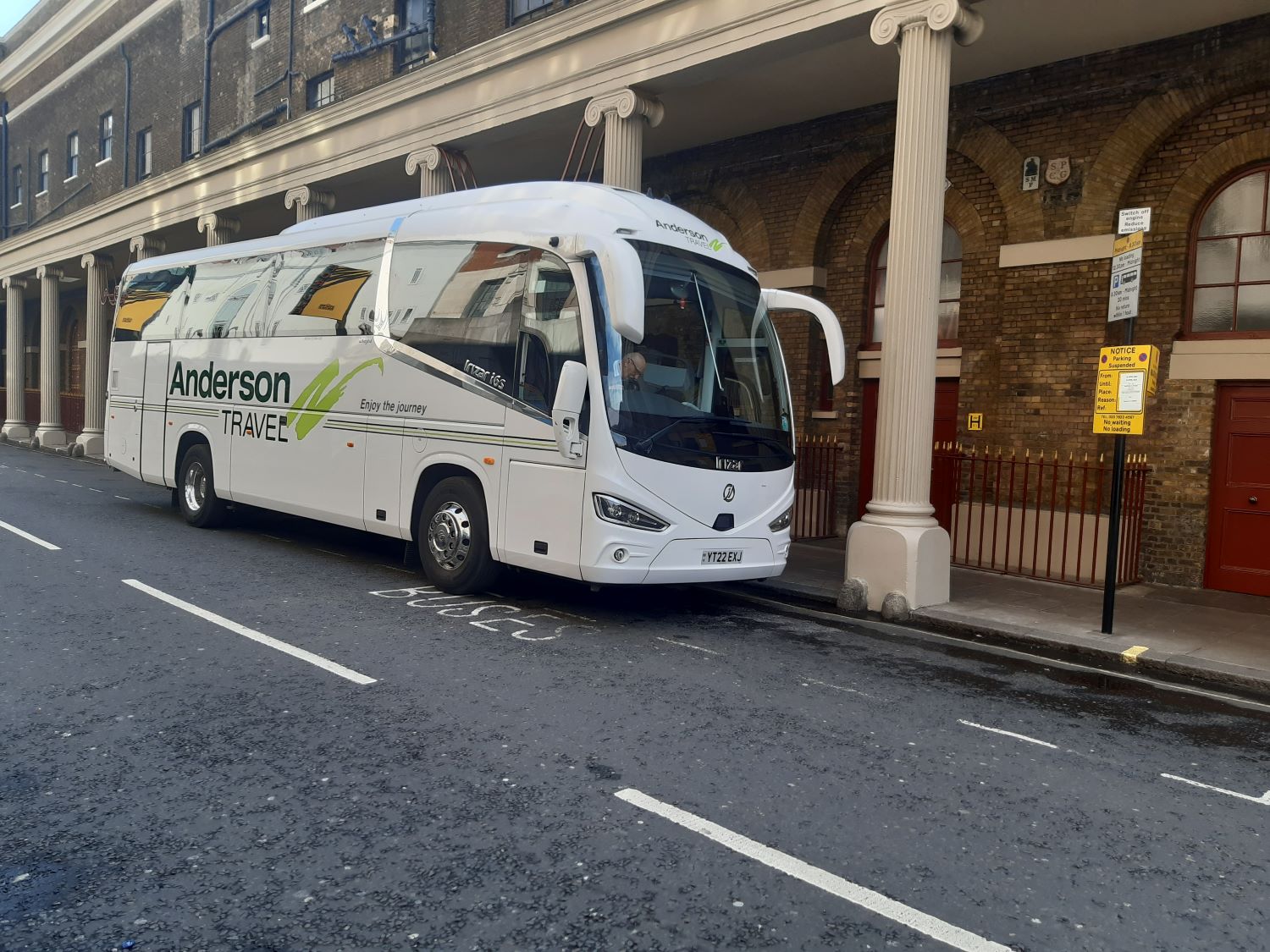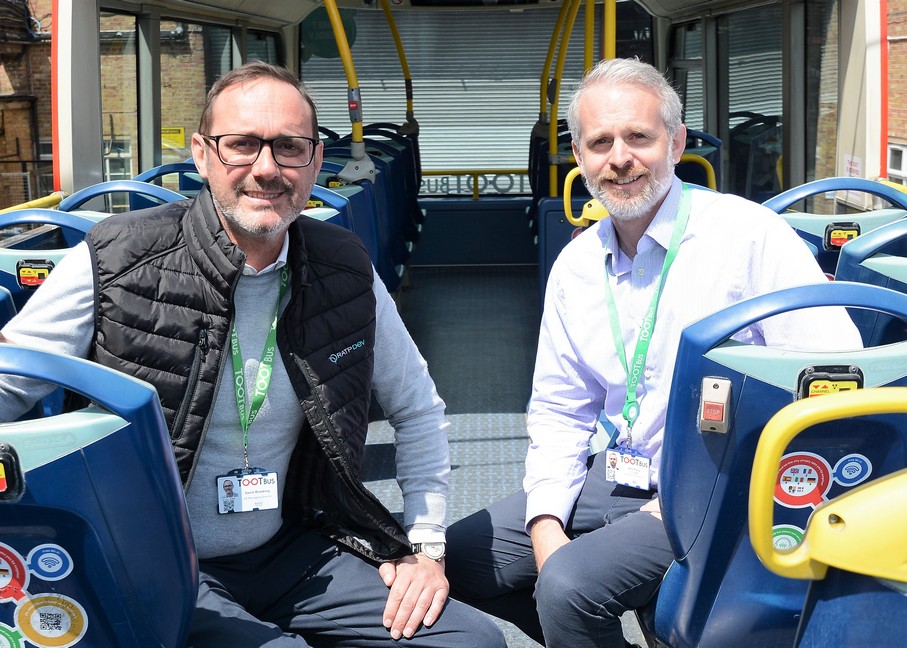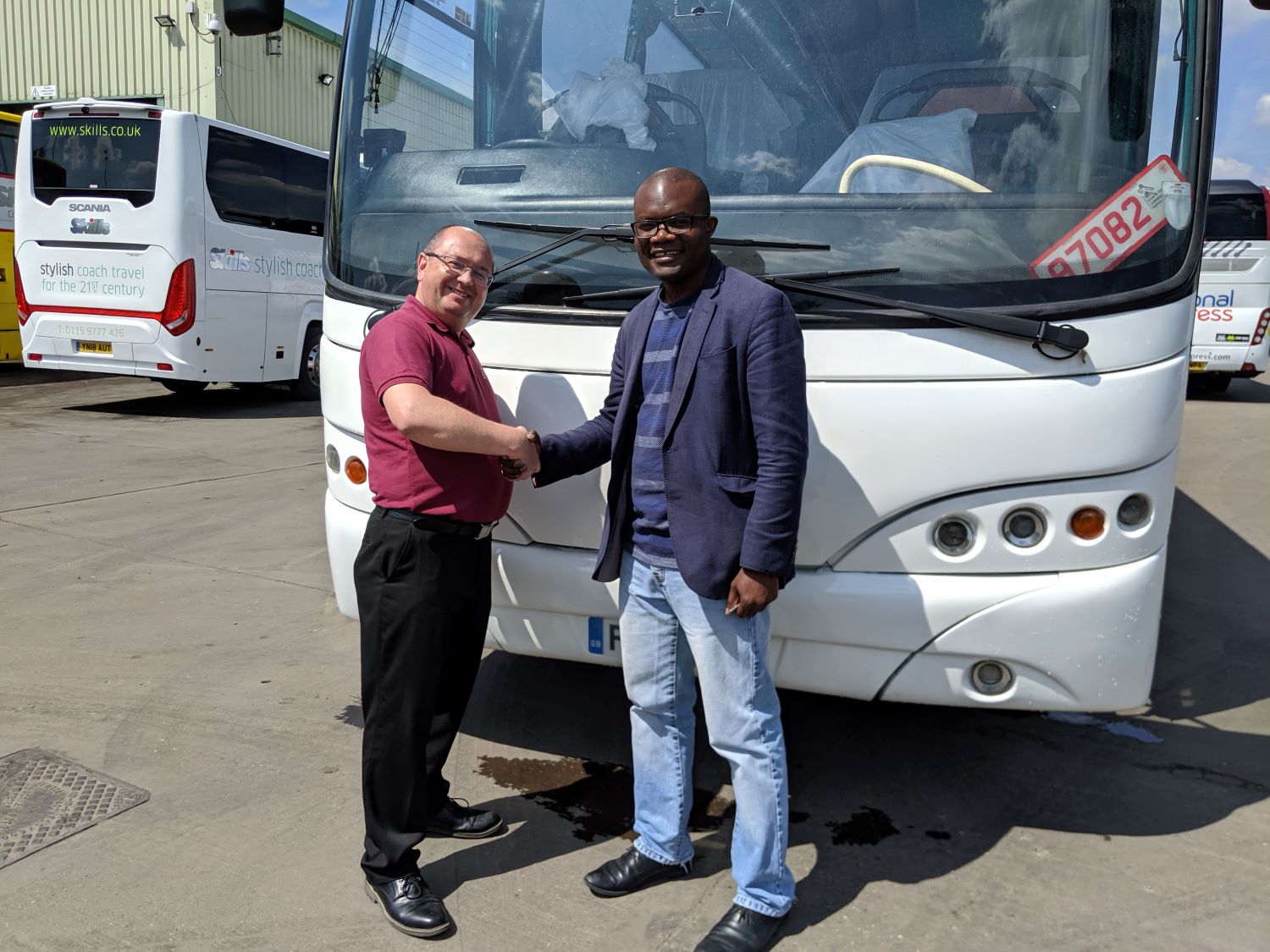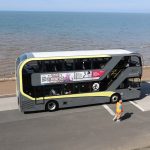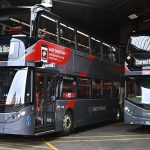As the industry grapples with the need for enhanced accessibility, UKCOA is engaging in dialogue with DfT to strike a balanced approach
Building relationships and fostering trust are key elements in achieving success.
That’s the belief of Peter Bradley, Managing Director of UK Coach Operators Association (UKCOA), who reveals dialogue with government officials, ministers, and Members of Parliament (MPs) has been instrumental to the trade body’s strategy.
In particular, Peter accentuates the indispensability of maintaining relationships with the Department for Transport (DfT), and the current Under-Secretary of State for Transport, Richard Holden – as it is through engaging in meaningful dialogue and establishing trust-based relationships that UKCOA has strived to navigate conflicting opinions surrounding the Public Service Vehicle Accessibility Regulations (PSVAR).
The latest meeting with Minister Holden highlights the trade body’s proactive approach to finding a solution that addresses diverse perspectives. routeone delves into UKCOA’s efforts to bridge the gap between stakeholders, shed light on the challenges faced, and explore the potential resolutions that may emerge from its ongoing work.
Results already achieved
With a focus on ‘gentle influence’, UKCOA has long been engaged in discussions surrounding PSVAR, seeking modifications that benefit the coach industry.
A fruitful collaboration between UKCOA and DfT has already yielded positive results. That is particularly evident in the exemptions granted under the current regulations. These exemptions provide a gradual transition towards full compliance by 2025, wherein all coaches on scheduled services will need to be partially compliant, with a proportion meeting full compliance standards. Peter highlights the compromised nature of these exemptions, but that this illustrates the productive synergy between UKCOA and DfT.
“Without us working together, that may not have existed, and we may well have had quite a different set of regulations, or a different set of exemptions that we would be following now,” he says. “This is as an example of why it’s good to build up a relationship – you’re able to find ways forward, and find common ground, which is what we did in that particular circumstance.”
However, challenges remain, especially concerning the forthcoming call for evidence, which will shape the future of PSVAR implementation. Peter anticipates a significant hurdle in addressing the concerns of the coach industry, particularly regarding space constraints imposed by wheelchair lifts and destination equipment.
On one hand, mandating PSVAR compliance for all new coaches may hinder the industry’s flexibility and impact luggage space. On the other hand, the inclusion of lifts and destination equipment can broaden accessibility and enhance the experience for individuals on tours.

Through constructive dialogue and evidence-based advocacy, UKCOA’s ultimate aim is to strike a delicate balance between disability advocacy groups, the coach industry, and government expectations.
Peter acknowledges that further progress is necessary but suggests moving away from expensive retrofitting solutions, which have already been undertaken to a significant extent. Finding a mutually agreeable path forward is crucial to accommodate evolving accessibility standards while ensuring the industry’s sustainability.
UKCOA aims to justify its proposed approach in the call for evidence, offering a compelling case for reasonable progression that avoids potential imposition from external sources.
“DfT are not going to want to stand still, because it will have pressure from elsewhere to continue the progress to full accessibility,” Peter says. “We need to find a way that we can do that, bringing both those who are disabled, those representing people who have disabilities, and the coach industry, along together. When we find a way of achieving that, we will have progress.”
Minister Richard Holden refrained from providing direct comments during the meeting with UKCOA, but recognising the importance of the upcoming call for evidence, encourages industry stakeholders to ensure their voices are heard and substantiated with robust evidence.
The trade bodies, including UKCOA, are poised to play their role in guiding members through the consultation process, fostering consensus and presenting suggestions.
UKCOA itself recognises the need for a balanced approach. While some within the coach industry may advocate for maintaining the status quo, Peter believes that a purely static position is unlikely to find favour – particularly as disability representatives push for more rapid progress towards full PSVAR compliance.
Striking a compromise that acknowledges the industry’s concerns while embracing reasonable progress will be vital for a successful outcome.
To facilitate constructive discussions and propose achievable solutions, UKCOA will engage its members in meetings through June and July. The focus will be on pragmatic advancements that balance accessibility requirements with sustainability and operational constraints.
Further engagement
During UKCOA’s meeting with Minister Holden, topics beyond PSVAR were also addressed. One area of discussion revolved around revisiting drivers’ hours regulations. The goal is to explore potential reforms that introduce practical flexibilities without compromising safety or driver well-being.
By engaging in ongoing discussions with DfT officials, UKCOA aims to identify sensible adjustments that can enhance drivers’ working conditions and provide operational leeway when necessary.
Another topic raised during the meeting was the future of fuels and decarbonisation. Peter acknowledges the challenge of a 2040 target when the sale of diesel coaches is expected to cease. However, concerns arise regarding the feasibility of alternative fuels for long-distance coaches, particularly hydrogen.
Peter highlights the significant changes required for small and medium-sized coach operators to accommodate hydrogen coaches, including extensive depot modifications and logistical challenges.
Moreover, he argues that the overall carbon impact of hydrogen production and its life cycle raises questions about its true environmental benefits. Peter acknowledges that opinions may differ, but he urges careful consideration of the practicality and cost implications for smaller operators.
“Although quite rightly it’s being seen as an option for long distance coach and for truck, I think for the small and medium-sized coach operators, the change which they would have to make in how they operate their businesses to accommodate hydrogen coaches is huge,” he explains.
“Operators are going to have to almost rebuild their depots. I’m not convinced that local authorities will allow some depots, where they are situated, to have hydrogen. I also wonder about the cost of the equipment – I fear it’s going to be utterly out of reach of the average coach operator.”
With the likely 2040 deadline looming and no hydrogen coaches regularly in operation, Peter further raises doubts about whether sufficient time remains to develop a viable hydrogen solution. He recalls that hydrogen has been touted as a future option since 2008, with promises of progress within a decade. However, the anticipated breakthrough seems to remain perennially “a decade away”.
As the industry continues dialogue with DfT on the subject, UKCOA will advocate for a balanced and pragmatic approach to future fuels, considering both the operational realities and the environmental implications.
Industry engagement needed
While UKCOA exists to represent its members’ interests, Peter emphasises the importance of consensus-building and the need to consider diverse perspectives within the industry. When it comes to PSVAR, balancing intelligence on the kinds of proposals likely to find favour, while accommodating various viewpoints, will be crucial to presenting a compelling case to DfT.
Collaboration among trade bodies, such as UKCOA, the Confederation of Passenger Transport, RHA, the Coach Tourism Association, and others, is, he adds, essential, to ensure a coherent and effective response to the call for evidence.
While different organisations may represent distinct groups of operators, the trade bodies must strive to align their positions, ensuring they are not too disparate. Ongoing cooperation and coordination among the trade bodies is critical for successfully influencing policy outcomes.
Conveying the industry’s concerns to politicians and working with the government to achieve a balanced approach to regulation ultimately can prevent excessive regulatory burdens that would otherwise discourage local coach operators, and ultimately, Peter warns, lead to their closure. Alternatively, incremental changes, responsive to societal needs while considering the viability of small coach operators, can help the industry thrive.
Maintaining visibility and building relationships with local politicians are essential aspects of that advocacy. By keeping local MPs and councillors informed about the industry’s challenges and positive contributions, UKCOA seeks to ensure that the interests of local coach operators are recognised and considered in policymaking.
“We need to make sure we don’t become invisible,” Peter says. “Being aware of your local politicians, thinking of ways to ensure your local MP or councillor is kept abreast of what you do and understands what your concerns and worries are, as well as the positiveness of what you do, goes into the mix.”
By actively engaging its membership, coordinating with other trade bodies, and fostering dialogue with policymakers, UKCOA strives to create the future where the small coach operator remains a valued and integral part of the UK’s transportation landscape.
Thinking outside the coach?
As the process of finalising UKCOA’s position on PSVAR begins, one key area of focus is enhancing the accessibility of boarding and alighting points for coaches. UKCOA aims to collaborate with DfT to develop guidance that encourages local authorities, tourist attractions, and landowners to create more accessible environments.
Peter is enthusiastic about the potential impact of such initiatives. He envisions simple yet effective changes, such as creating accessible walkways and level access points in car parks and popular destinations. These modifications can benefit not only wheelchair users but also individuals with mobility challenges.
UKCOA is also exploring the concept of modular equipment, allowing for the easy installation and removal of specific components depending on the coach’s purpose. Destination equipment can already be added or removed for tours versus scheduled services, thereby preserving views and optimising space. Such flexibility, if it could be extended to wheelchair lift installations, could bridge the gap between the desired progress of DfT and the industry’s concerns, ultimately accommodating the needs of all stakeholders.























